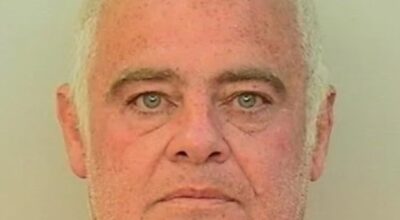Vehicular homicide sentence will stand: Appeals court finds 20-year sentence was adequate
Published 6:52 am Monday, December 19, 2016
The Third Circuit Court of Appeal has upheld the sentencing of a Denham Springs man for a 2012 vehicular homicide in Lake Charles. The court rendered their opinion on Dec. 7.
Jason Bennett, who had entered a no contest plea to one count of vehicular homicide, was sentenced in January 2015 to 20 years in prison with eight years suspended and five years of supervised probation.
Bennett had collided with a truck on the Interstate 10 Calcasieu River bridge in September 2012. The front passenger in Bennett’s Dodge Caliber, Derrick Barton, 27, was pronounced dead at the scene. Bennett subsequently tested positive for methamphetamine, amphetamine and opiates.
Bennett motioned the appellate court to reconsider his sentence, claiming it is was excessive because he did not receive credit for time he served on another charge in Livingston Parish while this case was pending.
Bennett also contended, according to court documents, that “because he took accountability for his actions the same day the accident occurred, cooperated with law enforcement, and exhibited a sense of remorse, the sentence imposed by the trial court was unconstitutionally excessive.”
The court stated that Bennett was appropriately sentenced, pointing out that his sentence was at the mid-range level of what he could have received.
The court also said that Bennett failed to show how the trial court abused its discretion.
“A lesser sentence would have deprecated the seriousness of this offense which resulted in the death of Derrick Barton,” the court wrote, “At the time of the accident, Mr. Bennett was impaired and should have been aware of the great risk he placed on both himself and his passengers by driving under the influence.”
The court, however, did remand Bennett’s case back to the state district court in order to correct the trial court’s failure in imposing a restriction of no parole, probation or suspension of sentence on at least three years of his sentence. He is also required to participate in a court-approved substance abuse program, which the appellate court said was also not ordered.





